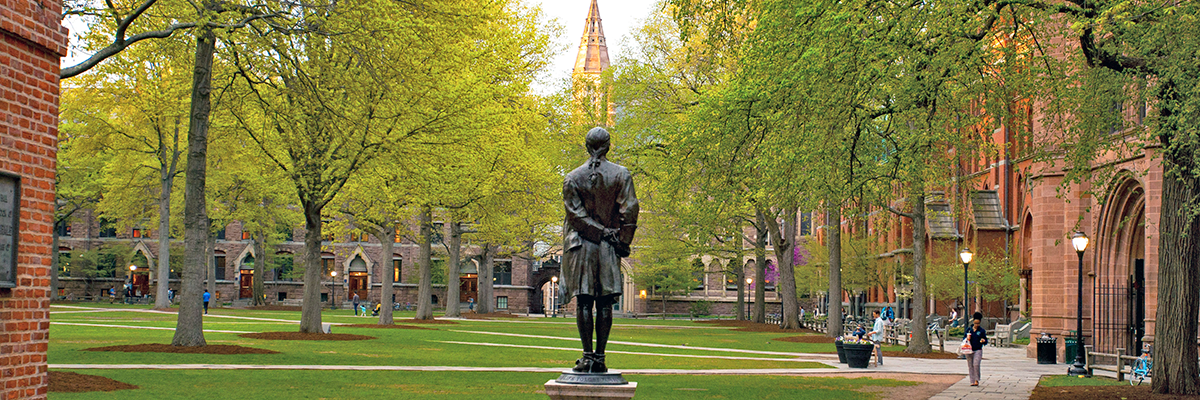HUMS 115,The Purposes of College Education

Course Description:
College is a crucial institution in which our society works through its expectations for young people. This course will explore some of the purposes that have been ascribed to college, including development of personal character, participation in a community, conversation with others on intellectual matters, and preparation for citizenship. We will also touch on other purposes, including career preparation and pursuit of knowledge for its own sake. Readings from Plato, Aristotle, Confucius, Bhagavad-Gita, Virginia Woolf, Martin Luther King, Max Weber, and others.
Immigration regulations require all first-year international students to take at least one course that is largely in-person. As you know, most courses at Yale this year will be offered primarily online. There are a number of in-person courses that you can choose to fulfill this requirement of the US immigration authorities, and this is one of them. For the in-person lectures in this course, preference will be given to international students.
Led by:
 |
Pericles Lewis, Douglas Tracy Smith Professor of Comparative Literature and Professor of English, serves as Vice President for Global Strategy and Vice Provost for Academic Initiatives at Yale University. Reporting to the President and the Provost, he is responsible for ensuring that the global efforts of the university serve Yale’s academic goals and priorities. Lewis works closely with colleagues across the university to provides strategic guidance for Yale’s many international programs and support for teaching and learning in all schools of the university. His primary responsibility is to enhance Yale’s international presence as a leader in undergraduate and professional education and a world-class research institution. From 2012 to 2017, Lewis served as founding president of Yale-NUS College, a collaboration between Yale and the National University of Singapore. Under his leadership, the college developed into a thriving model of residential liberal arts education. He oversaw the articulation of the college’s mission, the development of its curriculum, and the recruitment of students, faculty, and staff. Lewis’s research shows how developments in literary form emerge out of a background of social, political and existential ferment. His work focuses on the modernists who revolutionized European literature in the early twentieth century. The author or editor of six books, he was also the founding editor of Yale’s Modernism Lab, an early digital humanities project. A former member of the advisory board of the American Comparative Literature Association, Lewis serves on several editorial boards and has written for the Chronicle of Higher Education, The Harvard International Review, and Times Higher Education. |